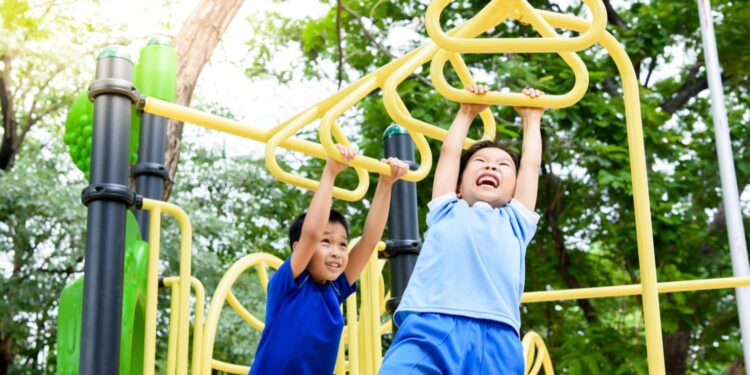How utilizing physical activity with ADHD can help students achieve academic success.
Attention-deficit hyperactivity disorder (ADHD) is one of the top diagnosed childhood psychiatric disorders(3). An individual who has been diagnosed with ADHD consistently participates in behaviors that include hyperactivity, inattention and impulsiveness. These behaviors lead to having difficulties functioning successfully in school settings and at home.
There are several characteristic behaviors demonstrated by those diagnosed with ADHD that can create a vast number of problems for students. Such behaviors and examples can be:
- Impulsiveness – talking over the teacher and calling out during class.
- Inattention –looking away from teaching and appearing to be daydreaming or demonstrating difficulty remaining on task.
- Hyperactivity –getting out of one’s seat often and fidgeting.
Many studies and research have been conducted to explore interventions designed for individuals who have been diagnosed with ADHD. For example, in one study, individuals exposed to their interests and passions had higher success rates while decreasing their ADHD symptoms(4).
Another study showed individuals who participated in regular physical exercise showed improvements in short reading comprehension and math skills, while decreasing distraction. It was also mentioned individuals who participated in various body movement exercises increased focusing skills(1).
One study highlighted students who participated in daily vigorous physical exercise. The results showed improvement in positive effects, while decreased physical activity had adverse effects. The individual who participated in the physical activity intervention improved executive functioning and decreased adverse effects(2).
Furthermore, studies show when providing an effective treatment plan and procedures, it is critical one uses a multimodal approach while delivering a functional-based intervention. The plan should be individualized and provide antecedent strategies, replacement behaviors and a schedule of positive reinforcement. Individuals and the multimodal treatment provide a practical approach for individuals to succeed using an effective treatment plan(3).
An action plan to begin implementation would include focusing on a strength-based approach. It’s important to start by interviewing parents and students better to understand their passions, interests and strengths. One would also complete direct observations to observe behaviors that would provide more details regarding their passions, interest and strengths while pinpointing their function of behavior.
Providing a rich learning environment for students to engage in opportunities and participate in physical activity, daydreaming and unstructured play will increase attending behaviors, transferring into academic success. Students who have access to positive attention and praise throughout the school day for participating in desired behaviors will also have a higher probability of academic achievement.
References
- Archer, D. (2015). The ADHD Advantage. New York, N.Y.: Penguin Random House LLC.
- Gawrilow, C., Kuhnhausen, J., Schmid, J., & Stadler, G. (2014). Hyperactivity and motoric activity in ADHD: characterization, assessment, and intervention. Frontiers in Psychiatry, 5.
- Roane, H. S., Ringdahl, J. E., & Falcomata, T. S. (2015). Clinical and Organizational Applications of Applied Behavior Analysis. United States: Elsevier.
- Saltz, G. (2017). The Power of Different. New York, N.Y.: Flatiron Books.










